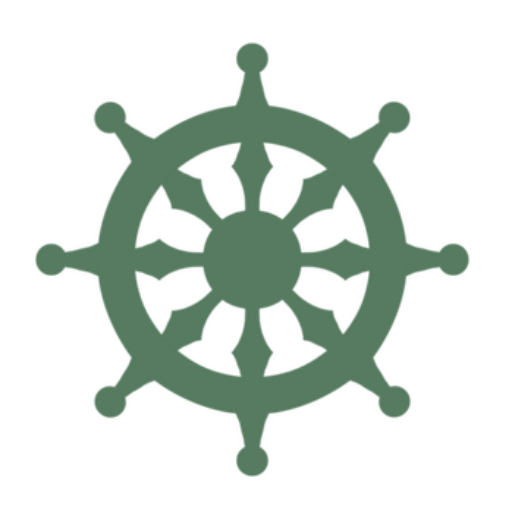Addiction is a complex and deeply personal battle, but it’s also one that can be won with the right support, care, and treatment. For anyone struggling with addiction—or watching a loved one struggle—the journey to recovery often begins with the critical decision to seek help. But navigating the many forms of drug treatment in Ontario can feel overwhelming. What kind of program is best? What resources are available? And how can you tailor a treatment plan to suit your unique needs?
At Twelve Mile Recovery, we believe in meeting every individual where they are and guiding them through a journey of healing. Recovery isn’t just about quitting drugs; it’s about rebuilding a fulfilling, substance-free life. Fortunately, Ontario offers an incredible array of treatment options—from inpatient care to trauma-informed therapies—that address the physical, emotional, and psychological layers of addiction.
In this blog, we’ll explore the many types of drug treatment in Ontario, their benefits, and how they can work together to support lasting recovery.
Why Ontario’s Drug Treatment Programs Stand Out
Ontario is home to a wide range of treatment facilities and programs tailored to meet diverse needs. Why is this important? Because no two people experience addiction in the same way. Some may be battling long-term alcohol dependency, while others are struggling with the grips of opiates, meth, or even prescription medications. Each substance brings its own challenges, and each individual has their own story.
What makes drug treatment in Ontario particularly unique is the variety of approaches available. Here, you’ll find programs that balance traditional, evidence-based practices—such as cognitive behavioral therapy (CBT)—with alternative and holistic options like yoga, mindfulness, nutritional coaching, and trauma-informed martial arts.
Recovery doesn’t just stop with treatment. Aftercare and family involvement are also emphasized to ensure lasting success. Whether you need intensive inpatient care, a flexible virtual treatment program, or ongoing community resources, Ontario offers solutions that work for different lifestyles and stages of recovery.
Breaking Down the Types of Drug Treatment in Ontario
Let’s explore the many paths to recovery available across Ontario. Whether you’re just beginning to consider treatment or you’re looking for specialized care, these options can guide you toward the right choice.
1. Inpatient Treatment: The Power of Immersion
Inpatient treatment is widely recognized as one of the most effective approaches to tackling severe addictions, such as cocaine, opiates, or meth dependency. By placing individuals in a safe, structured, and controlled environment, inpatient rehab allows them to step away from the triggers and distractions of daily life. This creates the space and support necessary to focus solely on their recovery and well-being.
At Twelve Mile Recovery, our inpatient treatment programs are designed to provide a comprehensive approach that not only addresses the physical aspects of addiction but also the mental and emotional challenges that come with it. Our programs include certified recovery counseling, tailored physical fitness activities, and practical life skills development.
What to Expect:
- Daily therapy sessions, including one-on-one counseling with certified professionals and group therapy to foster connection, understanding, and peer support.
- A variety of activities aimed at promoting both physical and emotional healing, such as yoga for stress management, mindfulness exercises for grounding, trauma-informed martial arts to rebuild confidence, and fitness programs to restore physical health.
This immersive and personalized approach is especially beneficial for individuals who are at a high risk of relapse or who have a history of trauma related to their addiction. By addressing both the root causes of addiction and providing tools for coping and growth, Twelve Mile Recovery empowers individuals to take control of their lives and build a future free from substance dependency.
2. Virtual Treatment Programs: Flexibility in Healing
Not everyone can commit to inpatient care, which often requires a significant time investment and separation from daily responsibilities. For individuals balancing work, school, or family obligations, virtual treatment programs provide a flexible and effective alternative. These programs bring the tools, resources, and support of traditional therapy right to the comfort of your home, eliminating the need for travel or extended absences.
Virtual programs typically include one-on-one counseling sessions with certified recovery counselors, group therapy to foster peer connections, and family support sessions to involve loved ones in the healing process. Additionally, many programs offer access to educational resources, self-paced workshops, and mindfulness exercises, ensuring a comprehensive approach to recovery. These programs are particularly effective for individuals with a strong support system at home who may not require the intensive, round-the-clock structure of inpatient care but still benefit from professional guidance.
The rise of virtual treatment has also significantly improved accessibility, especially for individuals residing in rural or remote areas of Ontario. With secure and user-friendly online platforms, people can connect with licensed therapists, participate in live group sessions, and access therapy tools tailored to their unique needs—all without leaving their homes. This accessibility is a game-changer for those facing geographic, financial, or mobility challenges, making recovery more achievable for a broader range of people. Virtual treatment programs are reshaping how care is delivered, offering a convenient and personalized path to healing for individuals who need it most.
3. Therapeutic Modalities: Healing from the Inside Out
No matter the type of program you choose, therapeutic modalities are at the heart of drug treatment in Ontario. These evidence-based therapies go far beyond addressing the surface-level symptoms of addiction. They help individuals explore and confront the deeper, underlying causes of their substance use, setting the foundation for lasting recovery and personal growth.
Examples of Therapeutic Modalities:
- Cognitive Behavioral Therapy (CBT): CBT is a widely used, results-driven approach that helps individuals identify and change harmful thought patterns and behaviors contributing to substance use. By recognizing negative triggers and replacing them with positive coping strategies, individuals can regain control over their actions and break free from destructive habits.
- Trauma-Informed Care: Many individuals struggling with addiction have experienced trauma in their past, which often serves as a root cause of their substance use. Trauma-informed care provides a safe, supportive environment to address these painful experiences. It integrates activities like trauma-informed martial arts, which not only promote physical well-being but also rebuild confidence, resilience, and a sense of empowerment.
- Mindfulness and Meditation: Mindfulness-based practices teach individuals to stay present and grounded in the moment, helping them manage stress and cravings without resorting to substances. Through mindfulness and meditation techniques, individuals learn to regulate their emotions, develop inner peace, and handle life’s challenges with greater clarity and composure.
These therapeutic approaches are designed to provide individuals with healthier coping mechanisms, empowering them to take charge of their recovery journey. By addressing both the psychological and emotional roots of addiction, these therapies ensure recovery is not just achievable but sustainable for the long term. Whether it’s through CBT, trauma-informed care, or mindfulness practices, each modality contributes to building a stronger foundation for a healthier, addiction-free life.
4. Addressing Addiction Across Substances
One of the biggest challenges in recovery is that different substances affect the body and mind in unique ways. Fortunately, Ontario’s treatment programs are equipped to handle a variety of addiction types, each requiring a tailored approach.
- Prescription Drug Addiction: Medications like painkillers or sleeping pills can cause physical dependency.
- Opiates Addiction: A combination of medication-assisted treatment (MAT) and trauma-focused therapies can help manage withdrawal symptoms and emotional challenges.
- Stimulant Addictions (Cocaine & Meth): These addictions often require therapies focused on rebuilding routines and addressing mental health concerns.
Ontario’s programs are designed to adapt to the specific challenges posed by each substance, ensuring that no individual is left behind in their journey to sobriety.
5. Physical Fitness and Nutritional Coaching
Recovery isn’t just about what’s going on in the mind—it’s also about healing the body. Years of substance abuse can take a serious toll on physical health, leaving individuals feeling weak and drained. That’s why many drug treatment programs in Ontario incorporate physical fitness and nutritional coaching as part of their approach.
At Twelve Mile Recovery, we encourage clients to rebuild their strength and stamina through fitness programs. These may include activities like hiking, weightlifting, or even trauma-informed martial arts. The goal is to restore physical health while boosting confidence and mental clarity.
Nutritional coaching is another key component. Many individuals enter treatment with depleted bodies due to poor diets or substance-induced deficiencies. By focusing on healthy eating habits, treatment programs help individuals regain energy and prepare for the demands of long-term recovery.
6. Life Skills Development
For many individuals, addiction has disrupted the basic routines and responsibilities of everyday life. That’s why life skills training is a crucial part of drug treatment in Ontario.
What Does This Involve?
- Time management skills to rebuild productive routines.
- Financial planning to help individuals regain independence.
- Communication and relationship-building skills to repair strained connections with loved ones.
At Twelve Mile Recovery, life skills coaching is woven into our programs to ensure that clients leave treatment feeling prepared to navigate the challenges of sober living.
7. Family Support and Aftercare
Addiction doesn’t just affect individuals—it impacts families, too. Many treatment programs in Ontario prioritize family involvement to repair damaged relationships and create a strong support network for ongoing recovery.
Through family therapy sessions, loved ones can learn how to set boundaries, communicate effectively, and support their family member’s sobriety. This involvement often extends into aftercare, which plays a critical role in maintaining progress after treatment ends.
Aftercare programs may include sober living homes, alumni groups, or continued access to therapy. These resources are designed to help individuals stay connected, motivated, and accountable as they transition back into daily life.

Intervention Services: Starting the Journey
One of the most challenging aspects of recovery is simply taking the first step. Many individuals are in denial about their addiction, or they feel ashamed to ask for help. Intervention services can provide a compassionate but firm push in the right direction.
In Ontario, intervention specialists work closely with families to guide their loved ones toward treatment. These professionals are trained to navigate the sensitive dynamics of addiction, creating a supportive environment for honest conversations.
At Twelve Mile Recovery, we often collaborate with interventionists to help families through this process. Whether you’re struggling with alcohol addiction, prescription drug misuse, or something else, the first step is always the hardest—but it’s also the most important.
A Holistic Approach to Recovery
At Twelve Mile Recovery, we believe that recovery is about more than just stopping substance use. It’s about rebuilding a life worth living. That’s why our programs take a holistic approach, addressing the mind, body, and spirit through a combination of evidence-based and alternative therapies.
Our clients participate in yoga and meditation to manage stress, trauma-informed martial arts to rebuild confidence, and physical fitness programs to restore strength. These activities, combined with certified recovery counseling, family support, and community resources, create a well-rounded foundation for long-term success.
Why Twelve Mile Recovery?
So, what sets us apart? At Twelve Mile Recovery, we pride ourselves on offering personalized care that meets you where you are. Whether you need the structure of inpatient treatment, the flexibility of virtual programs, or ongoing support through aftercare, we’re here to guide you every step of the way.
Our programs are designed to address the root causes of addiction while equipping individuals with the skills they need to thrive in recovery. By blending evidence-based therapies with holistic practices, we create a comprehensive approach that’s both effective and compassionate.
Final Thoughts
Drug treatment in Ontario is a journey—not a one-size-fits-all solution. Each person’s path to recovery is unique, and finding the right approach can make all the difference. Whether you’re seeking help for yourself or a loved one, understanding the diverse options available is an important first step toward healing. Ontario offers a wide range of resources, including inpatient programs for intensive care, trauma-informed therapy to address underlying issues, family support programs to involve loved ones in the recovery process, and virtual therapy for flexible and accessible treatment options. These programs are tailored to meet the individual needs of every person seeking help.
At Twelve Mile Recovery, we’re committed to providing personalized guidance and support at every stage of your journey. From exploring treatment options to creating a plan that fits your unique circumstances, we’re here to help you navigate the process with care and compassion. Recovery is possible, and you don’t have to face it alone. Take the first step toward a brighter, sober future—reach out to us today, and let us walk this path with you. Together, we can build a foundation for lasting change. Visit our website https://twelvemilerecovery.ca/ or call us at (289) 224-5588.



